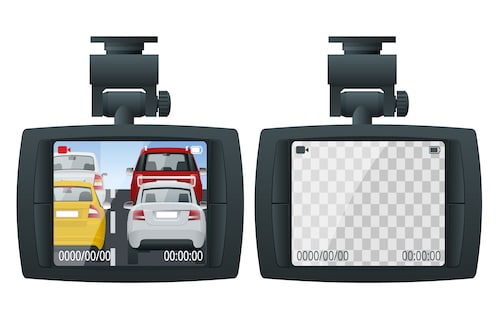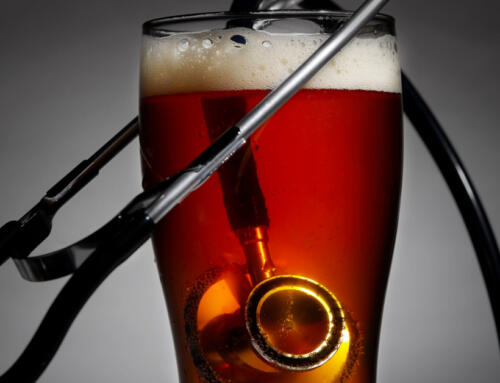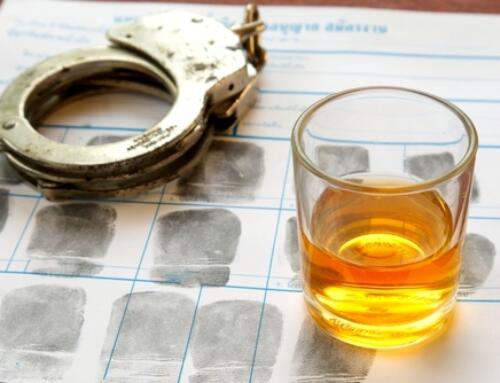In Pennsylvania, all police cars are equipped with dash cams (or, officially, “Mobile Vehicle Recorders”). This means that if you are facing a DUI charge, your traffic stop and arrest were most likely caught on video.
Depending on what the video shows, this could either help or hurt your defense.
There are a variety of ways that dash camera footage can potentially help with successfully defending against a DUI charge in Pennsylvania. But, for every potential benefit, there is a potential challenge as well. If you are facing a DUI charge, understanding how dash camera footage of your arrest can help (or hurt) your defense requires a clear understanding of what the footage shows and what legal issues are involved.
5 Important Considerations for Dealing with Dash Camera Footage During Your DUI Case in Pennsylvania
What do you need to know if there is dash camera footage of your DUI arrest? Here are five important considerations:
1. Does the Footage Show (or Potentially Show) that Your DUI Stop was Unconstitutional?
Under the Fourth Amendment to the U.S. Constitution, the police can only conduct a traffic stop if they have “reasonable suspicion” that the person they are stopping has violated the law. This is a fundamental protection that is intended to prevent racial profiling and other forms of police misconduct.
Does the dash camera footage from your DUI stop show that the police had reasonable suspicion? Were you swerving, weaving, or drifting out of your lane? Did you run a red light or stop sign? Did you almost hit someone?
Or, does the footage suggest that your DUI stop may have been unconstitutional? If there is no indication in the footage that you were driving dangerously or violating Pennsylvania’s traffic laws, then the footage could provide grounds to challenge your DUI stop and arrest. Evidence obtained following an unconstitutional traffic stop is inadmissible in court; and, without admissible evidence, prosecutors won’t be able to convict you.
2. Does the Footage Show that the Police Improperly Administered the Breathalyzer?
When administering the breathalyzer, state and local police in Pennsylvania must follow a strict set of rules and procedures. If an officer deviates from these rules and procedures, this can render a suspect’s blood alcohol concentration (BAC) reading inadmissible in court.
If your DUI arrest was recorded on the arresting officer’s dash cam, your lawyer will be able to review the footage to determine whether there are any issues with the administration of your breath test. If so, your lawyer can use this in your defense. If not, your lawyer may still be able to challenge your BAC reading in a variety of other ways.
3. Does the Footage Show that the Police Improperly Administered the Field Sobriety Tests (FSTs)?
Just like the breathalyzer, the police must also follow a strict set of rules and procedures when administering the field sobriety tests (FSTs). For example, the police must adequately explain each of the tests, they must ensure that suspects perform the tests on level ground with solid footing, and they must carefully observe suspects’ performance throughout the duration of all three tests.
If the dash camera footage from your DUI arrest shows that the arresting officer failed to properly administer the FSTs, this could render your FST results inadmissible. While this might not necessarily be enough to save you from a DUI conviction on its own (i.e., if your elevated BAC reading is valid), it can be an important piece of the puzzle for avoiding unnecessary consequences.
4. Does the Footage Show that the Arresting Officer Inaccurately Reported Your Performance on the FSTs?
Even if your arresting officer administered the FSTs properly, the dash camera footage from your arrest could still show that the officer inaccurately reported your performance on one or more of the tests. The FSTs are notoriously unreliable—in large part because whether a suspect “passes” or “fails” is largely subject to the arresting officer’s interpretation and discretion.
If your arresting officer says that you failed the FSTs and the footage from your arrest says otherwise, it will be tough for prosecutors to argue against the footage. The footage shows what it shows; and, if you did not fail the FSTs, an experienced defense lawyer should be able to use the dash camera video from your arrest to prove it.
5. Does the Footage Show that the Arresting Officer Failed to Read Your Miranda Rights Before Interrogating You in Custody?
Police officers must read suspects’ Miranda rights before interrogating them in custody. If you voluntarily make statements before your arrest, prosecutors can generally use your statements against you. This is true even if you are responding to police questioning, and even if you didn’t realize that you had the right not to answer.
But, once the police arrest you and take you into custody, they must read your Miranda rights before questioning you further. If the dash camera footage from your arrest shows you being taken into custody without being read your rights, this could provide grounds to argue that anything you said after your arrest is inadmissible in court.
What if the Police Didn’t Record Your DUI Stop and Arrest?
Now, let’s consider a different scenario. Let’s say the police didn’t record your DUI stop. What does this mean for your DUI case in Pennsylvania?
Without proof that the police followed the law, prosecutors could have a very difficult time securing a conviction. But, this assumes that you are able to raise the issue effectively. As with all of the potential defenses we discussed above, arguing that your charge should be dismissed because your DUI stop wasn’t recorded requires experienced legal representation.
Request a Free DUI Defense Consultation at The Fishman Firm in Philadelphia
If you are facing a DUI charge in Pennsylvania, defense attorney Brian Fishman can help. As a former Philadelphia prosecutor, Mr. Fishman is intimately familiar with the issues related to dash camera footage in DUI cases. To discuss your case with Mr. Fishman in confidence, call 267-758-2228 or request a free consultation online today.






